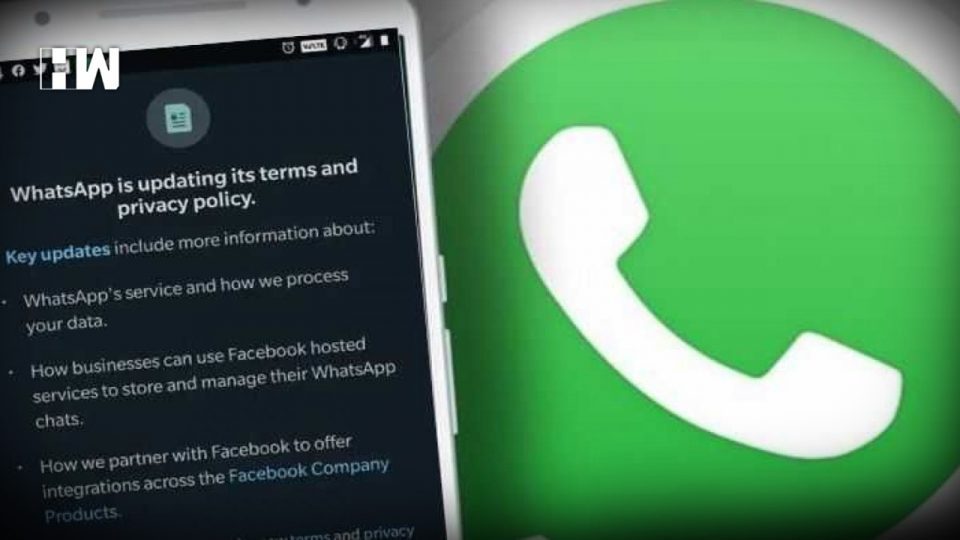The press release came hours after WhatsApp approached the Delhi High Court challenging the government’s new IT Rules saying the requirement for the company to provide access to encrypted messages will break privacy protections.
The Central Government on Wednesday said that it had no intention of curtailing an individual’s Right to Privacy — which the Supreme Court declared a fundamental right in 2017 — while clarifying that the new rules would not impact the functioning of the popular messaging app.
“The Government of India is committed to ensuring the Right of Privacy to all its citizens but at the same time, it is also the responsibility of the government to maintain law and order and ensure national security,” an official press release from the Ministry of Electronics and IT (MeitY) quoted Union Minister Ravi Shankar Prasad as saying.

The press release came hours after WhatsApp approached the Delhi High Court challenging the government’s new IT Rules saying the requirement for the company to provide access to encrypted messages will break privacy protections.
“It [the new rules] would force us to break end-to-end encryption on our messaging service and infringe upon the fundamental right to privacy and free speech of hundreds of millions of citizens using WhatsApp.” said the messaging platform in Delhi HC
The Union Minister also assured that none of the measures will impact the app’s usage by common users. “None of the measures proposed by India will impact the normal functioning of WhatsApp in any manner whatsoever and for the common users, there will be no impact,” it said.
“It [the new rules] would force us to break end-to-end encryption on our messaging service and infringe upon the fundamental right to privacy and free speech of hundreds of millions of citizens using WhatsApp.”
The rules have been framed after consultation with various stakeholders and social media intermediaries, including but not limited to WhatsApp, the government said.

“After October 2018, no specific objection has been made by WhatsApp to the Government of India in writing relating to the requirement to trace the first originator in relation to serious offences. They have generally sought time to extend the time for enforcement of guidelines but did not make any formal reference that traceability is not possible,” the MeitY statement said.
It also added that as per all established judicial dictum, “no Fundamental Right, including the Right to Privacy, is absolute and it is subject to reasonable restrictions. The requirements in the Intermediary Guidelines pertaining to the first originator of information are an example of such a reasonable restriction.”
The ministry said WhatsApp’s refusal to comply with the guidelines was a clear act of defiance of a measure whose intent could certainly not be doubted.
The new rules were notified on February 25 this year and came into effect from today. They contain a provision that makes it mandatory for social media apps to trace every message to its original sender.
Also Read: “Share Your Response ASAP, Preferably Today”: GoI Writes To Social Media Platforms On IT Rules…
Furthermore, Prasad said, “the entire debate on whether encryption would be maintained or not is misplaced. Whether Right to Privacy is ensured through using encryption technology or some other technology is entirely the purview of the social media intermediary. The Government of India is committed to ensuring Right of Privacy to all its citizens as well as have the means and the information necessary to ensure public order and maintain national security. It is WhatsApp’s responsibility to find a technical solution, whether through encryption or otherwise, that both happen.”
Citing examples of countries such as the UK, the US, Australia, New Zealand and Canada which have issued a communique that says, “Tech companies should include mechanisms in the design of their encrypted products and services whereby governments, acting with appropriate legal authority, can gain access to data in a readable and usable format.”
The MeitY said the rules enacted by the government in ‘public interest’ were not rules enacted in isolation but had global precedence.
“What India is asking for is significantly much less than what some other countries have demanded. Therefore, WhatsApp’s attempt to portray the Intermediary Guidelines of India as contrary to the right to privacy is misguided,” the statement read.
As an independent media platform, we do not take advertisements from governments and corporate houses. It is you, our readers, who have supported us on our journey to do honest and unbiased journalism. Please contribute, so that we can continue to do the same in future.

